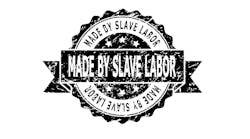MH&L Editorial Advisory Board Roundtable--Part 5: Talent Development is Your Job
The fifth installment in MH&L's Roundtable Series focuses on how logistics managers can cultivate the talent they need prospective and current associates to exhibit. Make sure to catch the previous installments of this series:
MH&L Editorial Advisory Board Roundtable--Part 1: Competing in a Global Marketplace,
MH&L Editorial Advisory Board Roundtable--Part 2: The Infrastructure Capacity Crunch,
MH&L Editorial Advisory Board Roundtable--Part 3: Technology Challenges,
MH&L Editorial Advisory Board Roundtable--Part 4: Channel Changes,
MH&L Editorial Advisory Board Roundtable--Part 5: Talent Development is Your Job
ANDEL: Getting a handle on supply chain channels is especially important with more mergers and acquisitions, often marrying two different cultures. But on a simpler level, maintaining the fulfillment muscle to get orders out of the warehouse and on the road, that's pretty tough if you have a revolving door with new people constantly entering and leaving.
SHEPHARD: We see a lot of supervisors being put into place before their time. They have been there a long time, but they are not educated. They don't know the sacrifices they have to make.
CHRISTOPHER: We really try hard to cultivate talent. We have a leadership development program internally, and we try to be creative. But I think there is a little bit of a generational thing, too. Many don't want to do the grunt work anymore. Paying your dues is somewhat unheard of.
WILL: The Millennial Generation, born between 1980 and 2000, tend to believe they should be able to work on their own time—that everybody is their peer. When I talk to companies in our region about training and skills requirements, they say, "geez, we just want somebody who shows up every day. We want good basic clay," but so many want to start out as president and they wind up working their way down.
ANDEL: It seems like everyone is saying there aren't enough good employees to go around anymore. Ron, you've talked about a business model where companies share assets; can that be applied to labor?
GIUNTINI: You might have heard about the Uber model of sharing assets. There is no reason why companies can't share employees. I believe that we are going to have massive electronic exchanges, where if you are a seasonal business, you will be able to share a forklift as well as employees. Some of these young kids may not want to work full-time, but they might want to have two or three part-time jobs.
ANDEL: Ann, you are an attorney. Do you see any flaws in this?
CHRISTOPHER: I do think there are a lot of challenges associated with it. I would say 25 percent of our labor force at any given time is temp labor. If you have people jumping from a very sophisticated, let's say, electronic locale and then working for a potential competitor, that's going to be really challenging. I see 3PLs that won't even allow their employees to have cellphones in the warehouse environment for fear they'll share potential trade secrets. It is challenging enough to get employees who are decent and then trying to train them on different product types, different processes. Each customer is unique, and there is no cookie cutter approach to their needs.
Jim Shephard discusses Making Industrial Training Stick



